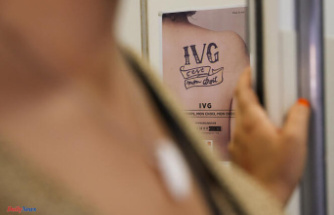The case is tricky: fraudsters resell a car that does not belong to them. The original owner wants the car back from the buyer - who paid a lot of money for it. And now?
Anyone who gets caught by scammers when buying a used car and unsuspectingly buys someone else's car has a good chance of being allowed to keep the car anyway. If the original owner - who was also cheated - shows up and wants his car back, he faces significantly higher hurdles. He must be able to prove that the new owner was not "good faith" when buying, as the Federal Court of Justice (BGH) decided today. This also applies when there is a dispute as to whether a forged vehicle registration document was involved.
"In good faith" is a term from the German Civil Code (BGB). There is actually a separate paragraph (paragraph 932) for the tricky situation. According to this, "the acquirer becomes the owner even if the thing does not belong to the seller" - under one condition: he must be "in good faith". This, in turn, is not the case "if he knows or, as a result of gross negligence, is unaware that the thing does not belong to the seller". That means in plain English: you shouldn't let the car turn on completely naively.
According to previous BGH judgments, when buying a used car, for example, it should be a matter of course that you have the vehicle registration document shown to you. If you don't even pay attention to this, don't be surprised if you fall for scammers. And there is one more restriction: "acquisition in good faith" is excluded "if the item was stolen from the owner, lost or otherwise misplaced".
But that was not the case here. The car dealership, whose managing director was later investigated for fraud in more than 100 cases, had leased the Mercedes quite regularly, i.e. rented it for a period of time. Only the leasing company from Mercedes-Benz did not get the car back: the car dealership sold it on to an unsuspecting car dealer from Italy for 30,800 euros.
The big question for the top civil judges in Karlsruhe: who is the rightful owner? The Stuttgart regional court had awarded the Mercedes to the leasing company. The Higher Regional Court (OLG), on the other hand, said: The car belongs to the buyer. This is how the BGH now sees it, as the presiding judge Bettina Brückner explained when the verdict was announced.
The sticking point here is actually the vehicle registration document or - as it is officially called today - the registration certificate part II. The man who picked up the car for the Italian dealer says he was presented with a registration certificate that looked real. The Mercedes-Benz leasing company, which has the original, disputes this. So statement stands against statement.
In this situation, the leasing company is at a disadvantage. Brückner said that when the BGB was created, it was deliberately agreed that the burden of proof should lie with the person who denied good faith. When buying a car, this means that it is sufficient for the buyer to state that he was shown the certificate and that he has checked it. "Then the previous owner has to prove that this information is not correct," the verdict said.
In this case, the car dealership had only shown the vehicle registration document, but not handed it over to the middleman. The question was therefore whether that shouldn't have seemed strange to the buyer. However, the Higher Regional Court found that this was common practice in the international car trade. The papers would be withheld until the so-called confirmation of arrival, which the seller needs for tax reasons, is available.












